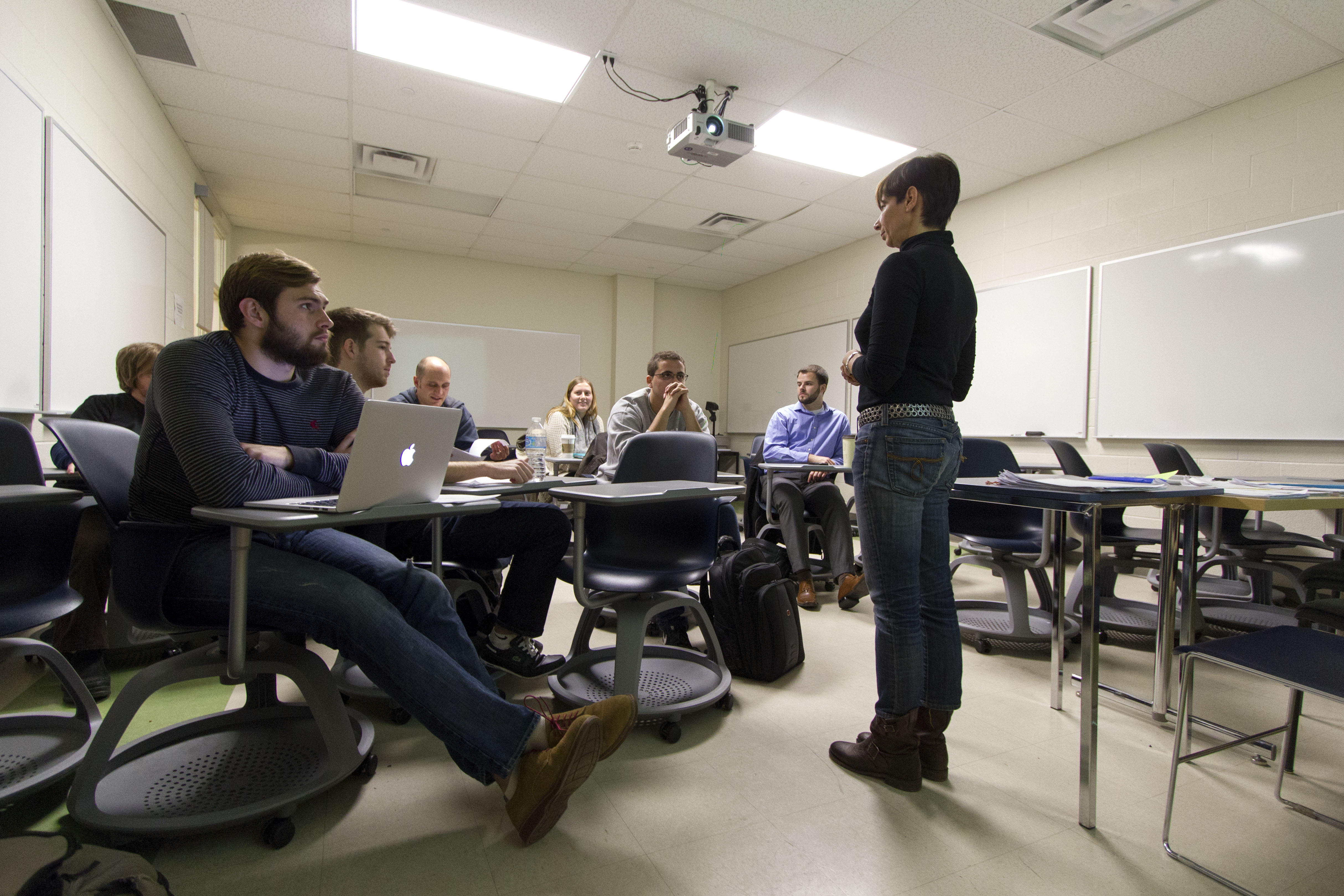A choice in active learning

Lectures and unnecessary innovation

Photo by Jessica Dik
Carpeted floors, round tables and walls covered with smart boards. Welcome to the latest thing in innovative learning: interactive classrooms. Since 2012, three have been built in the Dr. Alvin Woods Building and more could be on the way. In a time of pedagogy upheaval, we need to ask ourselves if interactive classrooms are improving or damaging the quality of student education.
At installation cost of $250,000, there has been high praise for these new classrooms that emphasize group work and discussion. Mercedes Rowinsky, professor and associate dean of student affairs and projects in the faculty of arts, told CBC that in interactive classrooms students learned Spanish quicker than in traditional classrooms.
News stations have praised the versatility of these rooms and suggest learning is more enjoyable in them.
I do not doubt there are benefits to teaching courses in interactive classrooms, but as students we need to be critical of their intellectual costs. In exchange for interactive learning, we sacrifice our biggest resource: faculty expertise. In interactive classrooms, students teach each other the content and professors merely guide them through course material. Often, lectures are halved to give extra time to student discussion, group work and presentations. Perhaps classes are more enjoyable, but they are also less informative. In October 2014, English professor Eleanor Ty told The Cord while she thought interactive classrooms enhanced student-teacher dynamics, they were not as useful for heavy lecture-based courses.
As university students, we have society’s intellectual elite at our fingertips. These individuals have PhDs with immeasurable amounts of knowledge and experience. In theory, we could learn just as much from readings, but it doesn’t replace the human touch associated with lectures. The invaluable knowledge provided through lectures is being taken away by interactive classrooms.
Currently, I’m enrolled in three third-year politics courses which take place in an interactive learning classroom. Initially I was excited to take these courses, but that enthusiasm has since faded. In all three cases, content-heavy courses are being changed to meet the demands associated with interactive classrooms. This term, my professors will be lecturing less. This is upsetting because my learning depends on lectures.
Yes, there are readings, but readings are supplementary. Yes, my peers can teach me but they do not know the content as well as professors do. Perhaps I’m old-fashioned, maybe readings and peers will teach me all I need to know. And yet, universities insist on employing PhDs to teach courses both in lecture halls and online. Therefore, professor knowledge is not completely dead. Perhaps interactive classes are a good learning hybrid, a combination of traditional and online teachingBut why do I still feel so ripped off by interactive classrooms? Because my education is taken less seriously, courses are light on content and assignments are not as reputable.
When courses are in interactive classrooms, there are no exams and often, fewer and/or shorter written assignments. My grade becomes more dependent on group work and class participation. Depending on your learning preferences, interactive classes may be easier or harder for you, but they challenge the value of your education. Already, university degrees are being called the new “high school diploma” because everyone seems to have one. Today, university degrees seem less meaningful than they were a generation ago.
What remains consistent however, was the rigorous teaching style, proving that while more people may have university degrees, they still demonstrate a higher level of intellectual competency. Lectures, exams and essays proved your degree still meant something because completing those traditional forms of evaluation were really hard to do. Interactive classes now challenge the value of university degrees because they lessen the brutalities that have become associated with university education. Consequently, my education is questioned and therefore my personal ability as well. When my arts degree already makes my employability questionable, it is made worse by an unrecognizable form of learning attributed to interactive classrooms. I’ve painted a nasty picture of the troubles caused by interactive classrooms and maybe they are not as terrible as I have made them out to be. But the unquestionable praise for interactive classrooms must be analyzed and altered with skepticism so that learning as a whole is improved.


